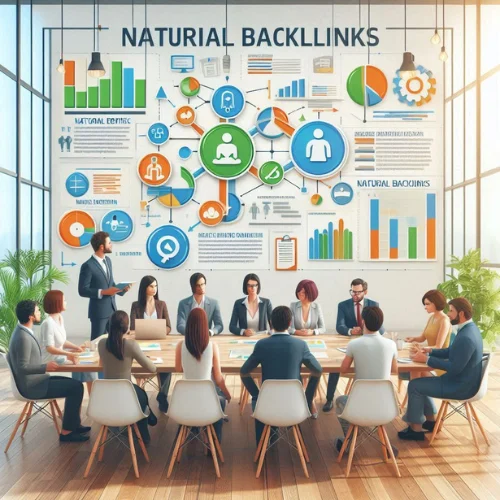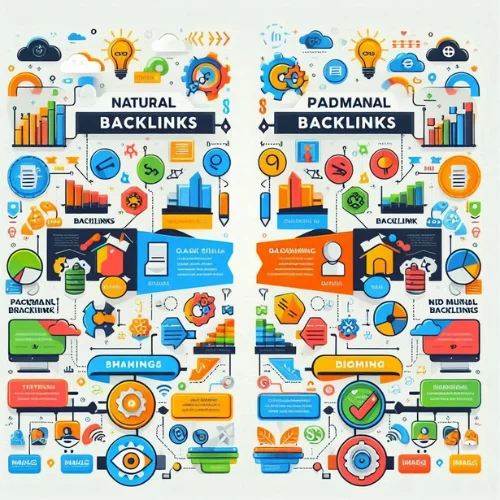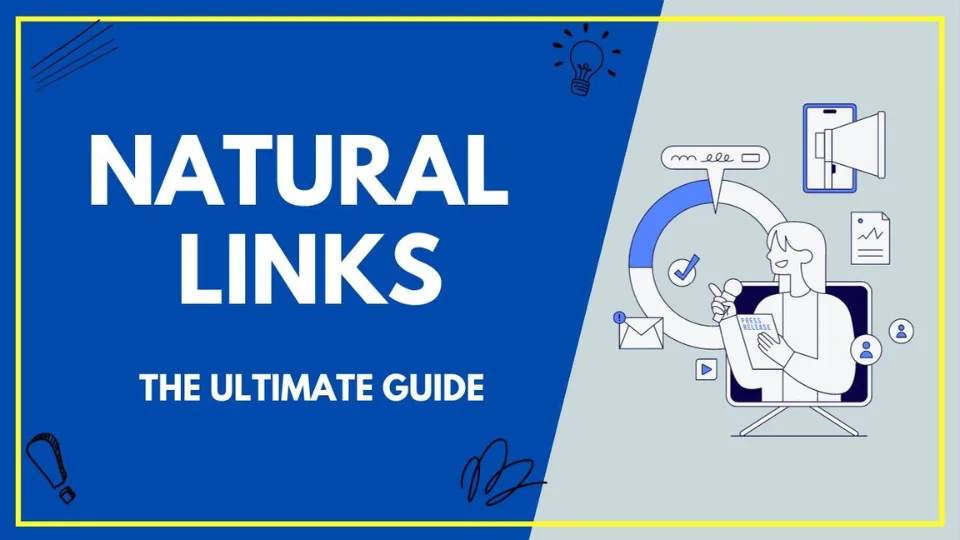What Are Natural Backlinks? A Complete SEO Guide
When it comes to building a strong SEO foundation, backlinks are crucial. But not all backlinks are created equal. Among the different types, natural backlinks stand out as some of the most powerful and valuable.
In this article, we’ll explain what natural backlinks are, why they matter for SEO, how they differ from other types of backlinks, and how you can earn them. Whether you’re new to SEO or looking to improve your website’s authority, this guide will make the concept of natural backlinks easy to understand and apply.
What Are Natural Backlinks?
Natural backlinks are links that other websites give to your site without you having to ask for them. They happen organically because someone finds your content valuable, informative, or helpful and decides to link to it as a resource.
Unlike paid or manually created backlinks, natural backlinks are given voluntarily, making them highly trusted by search engines like Google.
Examples of natural backlinks:
- A blogger linking to your article as a source for their own post.
- A journalist mentioning your website in a news article.
- A company referencing your research in their whitepaper.
Natural backlinks signal that your content is trustworthy, useful, and authoritative.
Characteristics of Natural Backlinks

Natural backlinks share a few common characteristics:
- Unsolicited: You didn’t ask or pay for the link.
- Relevant: The content linking to you is usually related to your niche.
- Contextual: The backlink is surrounded by relevant text, providing real value to readers.
- Diverse: They come from a variety of domains and types of sites.
Recognizing these traits helps you distinguish between natural backlinks and others that might violate SEO best practices.
Natural Backlinks vs Paid or Manual Backlinks

To better understand the importance of natural backlinks, it helps to compare them with other backlink types:
| Feature | Natural Backlinks | Paid/Manual Backlinks |
|---|---|---|
| Origin | Earned voluntarily | Bought or requested |
| SEO Value | High | Risky if detected |
| Google’s View | Positive | Potential penalty |
| Effort Required | Content-focused | Outreach or payment-focused |
| Sustainability | Long-lasting | Short-term gains, higher risk |
Natural backlinks align with search engine guidelines, while paid or manipulative links can harm your site’s reputation.
Why Are Natural Backlinks Important for SEO?

Natural backlinks are essential for several reasons:
- Boost Search Rankings: Search engines like Google view them as a strong vote of confidence, leading to higher rankings.
- Drive Referral Traffic: Visitors from reputable sites may discover your website and become loyal users.
- Build Domain Authority: The more trusted sites link to you, the more authority your domain builds over time.
- Future-Proof Your SEO: Since they comply with Google’s Webmaster Guidelines, natural backlinks protect your site from penalties.
Investing in strategies that attract natural backlinks can secure your website’s growth for the long term.
How to Earn Natural Backlinks
You can’t force natural backlinks, but you can create the conditions for them. Here’s how:
1. Create High-Quality, Unique Content
- Publish detailed guides, original research, or expert opinions.
- Focus on answering real user questions thoroughly.
2. Produce Shareable Visuals
- Infographics, charts, and videos are often linked by other creators who need visual content.
3. Build Relationships in Your Niche
- Engage genuinely with other bloggers, journalists, and influencers.
- Being top of mind increases the chance they’ll reference your work naturally.
4. Update Content Regularly
- Keep your information fresh to remain a relevant source worth linking to.
5. Focus on Topical Authority
- Cover related subjects deeply to become the go-to resource in your niche.
By consistently providing value, you encourage natural backlinks without directly asking for them.
Pros and Cons of Natural Backlinks
Pros of Natural Backlinks
- High SEO Value: Boosts rankings more effectively than purchased links.
- Safe from Penalties: Aligns with Google’s best practices.
- Long-Term Benefits: Natural links tend to stay live longer.
- Builds Trust: Audiences and search engines both see natural links as endorsements.
Cons of Natural Backlinks
- Takes Time: Earning natural backlinks is a slow process.
- Unpredictable: You can’t control when or how many you get.
- Requires Continuous Effort: You must consistently produce top-quality content.
While challenging, the benefits of natural backlinks outweigh the drawbacks over the long run.
Natural Backlinks for SEO: Real-World Examples
Understanding how brands earn natural backlinks can inspire your own strategy:
- Research Studies: A software company publishes an annual industry report that gets cited widely.
- Ultimate Guides: A fitness blogger creates a definitive guide on marathon training that other bloggers link to.
- Data Visualizations: A marketing firm releases infographics on social media statistics that news outlets use.
All these strategies focus on providing value first, which naturally attracts backlinks without aggressive promotion.
Frequently Asked Questions (FAQ)
What is a natural backlink?
A natural backlink is a link to your website that happens without you asking for it. It’s given voluntarily because your content is useful or valuable.
Are natural backlinks better than paid backlinks?
Yes. Natural backlinks are viewed positively by search engines and help improve SEO, while paid backlinks can lead to penalties if discovered.
How long does it take to earn natural backlinks?
It depends. If you consistently publish high-quality content and promote it effectively, you might start seeing natural backlinks within a few months.
Can new websites get natural backlinks?
Yes. New websites can earn natural backlinks by focusing on unique content, thorough research, and effective promotion strategies.
How do I track natural backlinks?
Use SEO tools like Google Search Console, Ahrefs, or SEMrush to monitor new backlinks and analyze their sources.
Conclusion: Natural Backlinks Are the Future of Sustainable SEO
Natural backlinks are one of the strongest indicators of website authority and trustworthiness. They bring sustainable SEO success by boosting rankings, driving targeted traffic, and protecting your site from algorithm penalties.
Instead of chasing quick wins with risky backlink tactics, invest your energy in creating high-quality, engaging, and helpful content. Over time, natural backlinks will follow, building a solid foundation for long-term online success.







